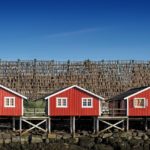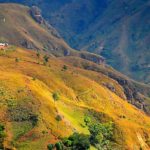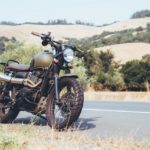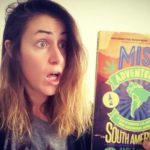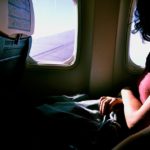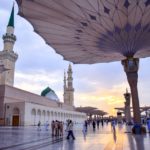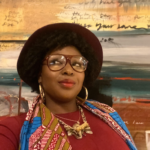Written Wild: In Conversation with Author Doniga Markegard
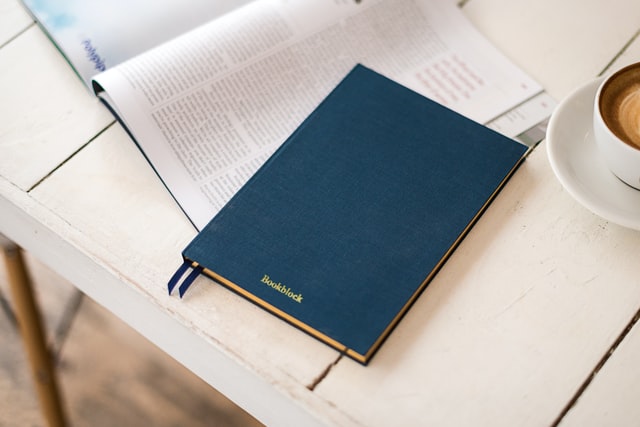
Dawn Again: Tracking the Wisdom of the Wild is the unique memoir of Doniga Markegard, innovative holistic and regenerative agriculturalist, professional animal tracker, mother, and traveler. Markegard’s writing takes readers from the forests of the Pacific Northwest, down the coasts of California, deep into the Denali National Park in Alaska, and across the Atlantic to tiny Italian villages alongside the Alps.
Regardless of where in the world she is, Markegard’s love and respect for the earth, environment, and all of its creatures is abundantly evident. It is the heart of her writing, making her words and stories pulse with life. Readers bear witness to Markegard’s journey of self-discovery as she learns the language of nature through the seminal Wilderness Awareness School (WAS), applying her lessons to her work as an animal tracker and her passion for permaculture.
Markegard’s journey to the strong woman she is today is an emotional story of self-discovery based on a deep connection to nature, with many lessons to share.
Her road to discovery began at age 13, when Markegard was thrown from her horse. This near-death experience ignited a curiosity for her self-purpose. Unsatisfied with traditional education and consumed with a deep internal desire for unadulterated freedom, Markegard ran away from home, bucked the public school system, and eventually found herself in the pilot program of WAS, which she describes as “a grand experiment to take kids raised with modern amenities and immerse them in the wilderness.” By learning skills such as how to extract food and medicine from wild plants, how to start a fire, how to track animals, and how to understand the environment surrounding them, students weren’t only learning how to survive in the wilderness, but also about self-awareness, patience, and leadership.
Though Markegard has a unique and fascinating teenage upbringing, it can be challenging to progress through this section of her memoir. It reads much like the overactive teenage mind: all over the place in its detail and order. It is difficult to keep track of the timeline as Markegard worked thematically more so than chronologically, and it’s hard to distinguish the significance of each moment.
I had never before considered the ecosystem in such a way, yet I finished the book with questions of “what change can I make?”
Markegard admits that she lacked understanding in her younger years of people with different relationships to nature than her own, and this is a mindset that affects the tone of her memoir. Her attempt to describe her burgeoning and bewildered teenage perspective can come across as preachy and overbearing. While Markegard is merely trying to provide an accurate portrayal of the internal mental barriers to her own self-development, readers who have not been able, or who have chosen not to be as connected to the environment as she, may feel put off by these initial written rants.
However, as Markegard grows and uncovers her true life passions, so does her writing. Her stories about animal tracking are exhilarating and I wish there had been more – more stories, more details, more content. Similarly, her knowledge about food and permaculture opened a door of curiosity within me; I had never before considered the ecosystem or my own foodshed in such a way, yet I finished the book with questions of “what change can I make?” And change is what Markegard is consistently aiming for, with her activism and passion for environmental progress and protection.
More than anything, it is Markegard’s emotion that steers the memoir. She does not shy away from discussing some of her life’s more challenging moments, such as being raped at a young age. She does not use her more traumatic stories for excitement or as plot devices – unlike what is too often seen in modern entertainment – but to be completely open with her readers and herself on how these affected her character and mentality.
Markegard’s journey from a 13 year old thrown off of her horse to the strong woman she is today is an emotional story of self-discovery based on a deep connection to nature, with many lessons to share. I was able to speak with her and ask her some questions.
Why Dawn Again for the title?
I was always someone who loves the dawn, it’s such a magical time. It’s symbolic of my rewilding process as a teenager, which is when I began to wake up before dawn and observe nature, such as the night shift of the owls becoming the day shift of the song birds. Plus, I mostly wrote the book at dawn!
What inspired you to write and share your story?
I had been wanting to write a book for a long time, but it’s a big time commitment. I was actually contacted by the publisher after she heard the Modern Farm Girls podcast I did. I had to rearrange my life, but was finally able to carve out a time to do this. It wasn’t easy. It was a rough year of working on it every day. I am especially thankful of my husband, my family, and my ranch hand. I wouldn’t have been able to do it without them.
One of the first things you discuss is education. You are a self-proclaimed mismatch for the traditional education system and ended up in the pilot program of Wilderness Awareness School. What’s the one lesson from WAS that should be integrated in everyone’s education?
Everyone should experience getting out of their comfort zone, and the wilderness is a prime place to get out of the comfort zone. Everyone should have the experience of living on the edge – so asking all of my senses to engage in the moment, whether it is tracking a predator or survival. But in a safe way, put yourself on the edge in a safe way. It might be scary, hard, and you might fight it, but that crisis situation could lead to an awakening that brings you to a deeper place inside yourself. You might discover a fire that can’t be put out. In comfort zones, the fire that fuels our passions and makes us want to get out of bed in the morning have been suppressed or put out, so we need to put ourselves on the edge.
Now, as a mother, you and your husband have sought to provide a similar education for your children. How can more kids get this opportunity today?
One of my pet peeves is that schools look like jails. The architecture mirrors prisons, and putting kids in these institutions at a young age seems to crush the ability to explore, imagine, and create. We need to redesign the space! I think teachers are doing a great job – practicing mindfulness, organizing great science activities, doing great gardening. Teachers have been very innovative with curricula, but we are stifled by infrastructure. Kids were once encouraged to look and engage with the outdoors, and with what is going on around them.
Speaking of being aware of the world around you, you have dedicated a large amount of your life to animal tracking, which requires you to be attuned to not only your surrounding environment, but also to put yourself in the mindset of the animal. What is one thing everyone should know about tracking?
Tracking is the oldest science known to humans. It puts us in touch with, for a lack of a better term, our primitive self. Tracking has helped us to evolve and still connect us to our ancestral brain. It teaches us how to take our place as humans within the larger complexity of life on this planet.
In your memoir, you mention places like Alaska and Germany, but where is the farthest from home tracking has taken you?
To Africa! Specifically, we were tracking in Zimbabwe, Zambia, and Botswana. We worked with villagers who tracked mostly for survival, as a means of hunting. They tracked because they needed to do so. We also worked with herders, and I remember being so impressed by one tracker who could distinguish the cattle by footprint.
I personally was awed by how much patience you must have to accomplish some of the tasks you were doing on a regular basis. How can people learn to practice the patience of a tracker?
It wasn’t easy. Patience for a lot of my peers was the most difficult part. We could develop strengths and skills, we could learn to light a fire, we could learn the plants and the trees, we could learn to build a shelter, but sitting learning how to be quiet was challenging. We tried to make it fun by always trying to hide and scare each other. This is something my kids will do today. They will wait so long to try and scare me. My 7 year old sneaked up on me the other morning when I was behind my truck unloading these amazing pears. I was so distracted by how delicious the pears were that she got me good. I screamed, I honestly thought it was a predator.
Speaking of delicious pears, let’s discuss one of my favorite things: food. So much of what you do as a rancher revolves around food, including your decision to be a regenetarian. How has this affected your lifestyle?
So many people don’t have the experience of picking perfectly ripe food, and experiencing the flavor and nutrition of food how it wants to be eaten, opposed to packaged food designed to last. But it brings so much pleasure. I love food, cooking, preparing meals, and have loved learning about gathering and producing incredible taste. We have a refined food and wine culture in this country and people, myself among them, strive for flavorful experiences with food, despite it not lasting long.
The joy of food can’t be replicated by grocery store produce unless it is super-high quality nutrient-dense foods. And wild food that I gather or that I grow gives me so much energy. But even more, it’s a chance to engage with the land through my own nutrition. It also connects me with my family. My favorite times are cooking and creating with my son. It’s a bonding time, from prep to sitting down at the table together.
Any cooking advice?
Keep everything simple, don’t over spice. You should work to bring out the flavors of the ingredients, without overcooking. Sourcing high-quality ingredients is also key. And that doesn’t necessarily mean expensive. It’s about the quality of where it is coming from.
What recommendations do you have for people who don’t live near farms or who have difficulties accessing sustainable food products? How can all people better control their food system?
Everyone can grow something, whether it’s finding a community garden plot or window-side herbs. By growing, we are engaging with creation. If you would rather outsource, then engage with a farmer or rancher with practices that align with good values. Engage and connect with where food is coming from.
In your memoir, you state: “Most of the San Francisco Bay Area neighbors ate food that had travelled an average of 1300 miles to them.” What are the implications of eating food that had travelled so far?
The Bay Area could be supplying all of own food, with the exception of potatoes and eggs. There is a great climate and a diversity of crops. And not doing so has repercussions all around us. Even in the last few weeks, the fire and smoky air is a consequence. People have had to evacuate or have lost everything to fires. Climate change and rising natural disasters are the biggest repercussions. Because of their practices, the agricultural industry is one of the biggest producers of greenhouse gases. The solution is in the hands of farmers and ranchers. If we can shift our practices and sequester carbon rather than emit it, we can stabilize our climate. But it takes everyone; consumers will need to choose regenerative sources, which requires a big shift of public opinion.
Are there any everyday ways to achieve a more permaculture-rich life? What can the average person do?
Step outside and learn from nature. The biggest thing I want to make clear is that we can’t do any of this without a very strong connected relationship with ecology and the inherent wisdom from studying nature. We can learn from Indigenous peoples who balance and live with nature.
You are very open in the book and don’t shy away from hiding some of life’s harsher lessons. What inspired you to be so open?
It was challenging. I had never told anyone some of these things and now I was telling the whole world. I looked at it as I was writing this for young women, and by writing this I could potentially create something inside somebody to help. I wrote this for my daughters. I wrote this for confused teenage girls looking for forms of rebellion. One of my intentions in writing was to not hold back any emotions or difficult times and processes.
You share your story of being raped: what message do you wish to spread by sharing that story?
There’s a lot of shame that surrounds it, but be honest and share your story. Most likely the person you share with has their own story. When you’re able to talk to people about similar experiences, that is very freeing. These experiences shouldn’t be all-consuming. Get the help you need to come out more empowered. Don’t let the experience become you.
Pink Pangea is a community for women who love to travel. What lessons have you learned from travelling?
Travel is how I started this journey. It is what got me out of my comfort zone. Go immerse yourself and learn from other people. There are a lot of places out in the world where people experience immense hardships with no control. Living in the San Francisco Bay Area, our day-to-day hardships are miniscule, not even on a map compared to what real people with shared values and rights are experiencing every day. It really puts our life into perspective. There is something to learn from every culture and apply to your own life. Don’t just go and do what tourists are doing, go immerse yourself in day-to-day life.
A huge thank you to Dawn Markegard for speaking with Pink Pangea. Dawn Again: Tracking the Wisdom of the Wild is out now from Propriometrics Press. Top photo credit by Unsplash.

